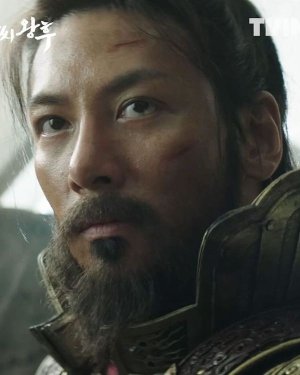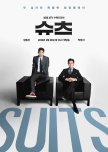Cette critique peut contenir des spoilers
At end in reality everything was Worthless
in reality, if it were discovered that Go Yeon-woo had been practicing law without a license, it could lead to serious legal repercussions. Every case he worked on or influenced could potentially be reopened or called into question. The rationale is that since Yeon-woo was not legally qualified to act as a lawyer, his involvement in those cases would be deemed illegitimate.
This could result in the following:
1. Appeals and Retrials: Clients, opposing parties, or even the legal system might demand that the cases be reopened and retried. This is because the integrity of the legal process would be compromised if an unqualified person was involved in making decisions or providing legal counsel.
2. Nullification of Case Outcomes: Some case outcomes could potentially be nullified if it is proven that Yeon-woo's involvement led to a significant legal error or unfair advantage. This could include judgments, settlements, or agreements made while Yeon-woo was representing clients.
3. Firm's Liability: The law firm, Kang & Ham, would also face legal and reputational risks. The firm could be sued for negligence or fraud for allowing an unlicensed individual to handle cases, and their own credibility could be seriously damaged.
However, Suits does not delve deeply into this possibility in the final episodes. The show is more focused on the personal consequences for Choi Kang-seok and Yeon-woo, rather than the larger legal fallout of Yeon-woo's deception. In reality, such a situation would have widespread ramifications across the cases he worked on.
Suits (the Korean version) significantly downplays the real legal consequences that Yeon-woo would face in reality for practicing law without a license. The show opts for a more character-driven, emotionally satisfying resolution rather than portraying the full extent of legal repercussions.
In reality, Yeon-woo’s actions—pretending to be a lawyer and handling cases—would lead to serious legal consequences, including:
Criminal Charges: Practicing law without a license is a serious offense and could result in criminal charges, including fines and possible imprisonment.
Disqualification from Future Legal Practice: Yeon-woo would likely be permanently barred from ever becoming a legitimate lawyer, as his fraud would damage his credibility.
Damages to Clients and Retrials: As you pointed out, the cases Yeon-woo worked on could be reopened, and he and the firm could face lawsuits from clients or opposing parties. The firm could also face sanctions for negligence.
However, in the drama, Yeon-woo doesn't face these full legal consequences. Instead, the show focuses on the emotional fallout: his leaving the firm, the strain on his personal relationships, and the professional sacrifice made by his mentor, Choi Kang-seok, who takes much of the blame. The drama "sugarcoats" the situation, framing it more as a personal moral journey rather than the harsh legal consequences one would expect in real life.
This approach makes the story more palatable for viewers, emphasizing themes of redemption, loyalty, and responsibility, but it doesn’t realistically portray the gravity of Yeon-woo’s legal misconduct.
This could result in the following:
1. Appeals and Retrials: Clients, opposing parties, or even the legal system might demand that the cases be reopened and retried. This is because the integrity of the legal process would be compromised if an unqualified person was involved in making decisions or providing legal counsel.
2. Nullification of Case Outcomes: Some case outcomes could potentially be nullified if it is proven that Yeon-woo's involvement led to a significant legal error or unfair advantage. This could include judgments, settlements, or agreements made while Yeon-woo was representing clients.
3. Firm's Liability: The law firm, Kang & Ham, would also face legal and reputational risks. The firm could be sued for negligence or fraud for allowing an unlicensed individual to handle cases, and their own credibility could be seriously damaged.
However, Suits does not delve deeply into this possibility in the final episodes. The show is more focused on the personal consequences for Choi Kang-seok and Yeon-woo, rather than the larger legal fallout of Yeon-woo's deception. In reality, such a situation would have widespread ramifications across the cases he worked on.
Suits (the Korean version) significantly downplays the real legal consequences that Yeon-woo would face in reality for practicing law without a license. The show opts for a more character-driven, emotionally satisfying resolution rather than portraying the full extent of legal repercussions.
In reality, Yeon-woo’s actions—pretending to be a lawyer and handling cases—would lead to serious legal consequences, including:
Criminal Charges: Practicing law without a license is a serious offense and could result in criminal charges, including fines and possible imprisonment.
Disqualification from Future Legal Practice: Yeon-woo would likely be permanently barred from ever becoming a legitimate lawyer, as his fraud would damage his credibility.
Damages to Clients and Retrials: As you pointed out, the cases Yeon-woo worked on could be reopened, and he and the firm could face lawsuits from clients or opposing parties. The firm could also face sanctions for negligence.
However, in the drama, Yeon-woo doesn't face these full legal consequences. Instead, the show focuses on the emotional fallout: his leaving the firm, the strain on his personal relationships, and the professional sacrifice made by his mentor, Choi Kang-seok, who takes much of the blame. The drama "sugarcoats" the situation, framing it more as a personal moral journey rather than the harsh legal consequences one would expect in real life.
This approach makes the story more palatable for viewers, emphasizing themes of redemption, loyalty, and responsibility, but it doesn’t realistically portray the gravity of Yeon-woo’s legal misconduct.
Cet avis était-il utile?
























